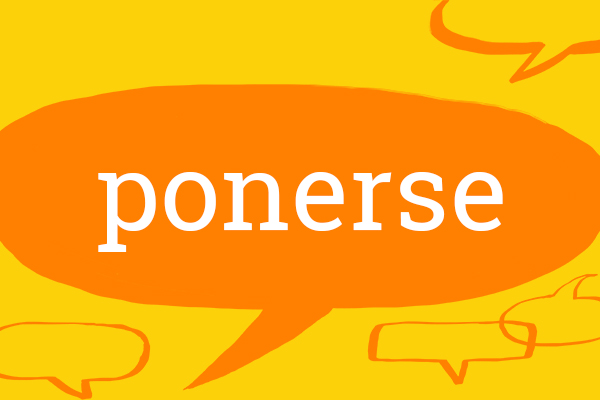This week’s Spanish word of the week is ponerse.
Using ponerse, the reflexive form of poner, with a following adjective is a very common way of saying to get or to become. It often applies to people:
Cuando tiene que viajar en avión se pone muy nervioso. He gets very nervous when he has to travel by plane.
el método ideal para ponerse en forma the ideal method to get fit
Se puso enferma durante una visita a Roma. She became ill during a visit to Rome.
When ponerse is followed by a and then the infinitive, it’s another way of saying to start doing something:
Su intención es ponerse a trabajar cuanto antes. She intends to start working as soon as possible.
Nada más ponerme a hablar comprendí que era inútil. As soon as I started talking, I realised it was pointless.
This construction is often used with the verbs llover and llorar:
A los pocos minutos se puso a llover. A few minutes later it started to rain.
¿Me voy a poner a llorar por eso? ¡Ni hablar! Am I going to cry over that? No way!
Come back next week to read about our next Spanish word of the week!



